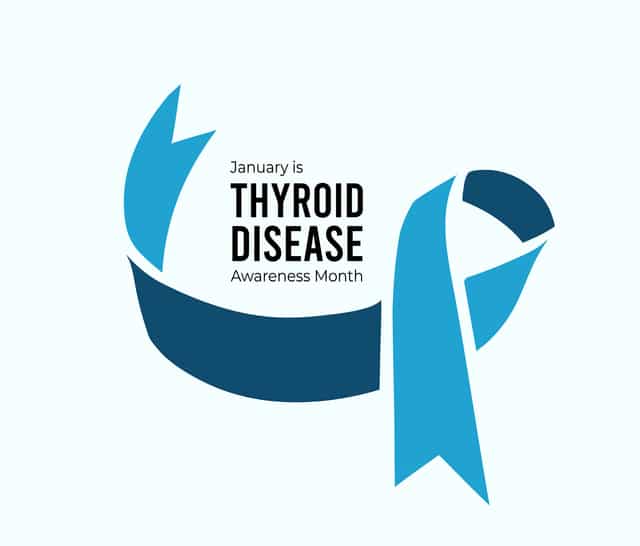Thyroid Awareness for Seniors

Thyroid-related illnesses are much more common in seniors than most people realize. The symptoms can range from “fluttering of the heart” to loss of strength in legs and difficulty swallowing with a dry cough and itchy skin. To the untrained eye, most wouldn’t think any of these symptoms would be thyroid related, but that’s why it’s very important to report any symptoms to your primary care doctor so they can get a full picture of your health.
Hyperthyroidism
Hyperthyroidism is the overproduction of the thyroid hormone, also known as an overactive thyroid. That can cause many symptoms, such as weight loss, hand tremors, muscle weakness and rapid or irregular heartbeat, and thinning and brittle hair. However, these symptoms can be much more subtle in seniors and are often overlooked due to age. A senior might only feel a fluttering heart while going up the stairs or develop depression with a slight hand tremor. Additional symptoms could be increased sweating, sleep problems, and increased hunger, just to name a few. Hyperthyroidism is often initially misdiagnosed as Parkinson’s and other ailments, but it is much easier to treat and has a great prognosis.
Treatment
Hyperthyroidism is often treated with antithyroid drugs and radioactive iodine. Surgery is rarely ever recommended for older patients, due to increased risks with an operation. Doctors will monitor medications until thyroid function has become normal, and will continue to monitor them to make sure the thyroid is functioning properly. If you experience any of these symptoms, we encourage you to speak to your primary care doctor. These symptoms are not considered normal regardless of your age and should be treated.
Hypothyroidism
Also known as an underactive thyroid, hypothyroidism is when your thyroid is not producing enough of the thyroid hormone. This condition is incredibly common in older adults, with 1 in 4 patients in a senior living community suspected of having undiagnosed hyperthyroidism. Memory loss and decreased cognitive functioning are symptoms of hypothyroidism that can often be overlooked due to age. Additional symptoms include weight gain, tiredness, dry skin, and constipation although these symptoms might not be present in everyone.
Underactive Thyroid Treatment for Seniors
If you have an underactive thyroid, you will have to substitute your natural thyroid hormones with a pure synthetic thyroid hormone like thyroxine (L-T4). It will replace what your thyroid isn’t providing, and your body won’t know the difference. When testing to confirm hypothyroidism, doctors will often take bloodwork over three to four months to confirm. Treatment often starts at a low dose and slowly increases, allowing your heart and central nervous system to adjust to the increased hormone levels. The patient and family should be aware that shortness of breath, confusion, and change in sleep habits may occur, and if they do, to notify the prescribing physician right away.
Thyroid disorders don’t have an age limit, and hypothyroidism is actually more common in older adults. It’s more difficult to diagnose because symptoms can be more subtle and may also be disregarded or confused with other age-related illnesses. As a patient, it is important to advocate for yourself, especially if you have a family history of thyroid issues.




